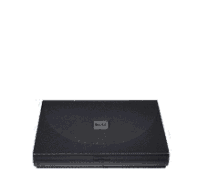|
Customer Relationship Management (CRM) is a business philosophy involving identifying,
understanding and better providing for your customers while building a relationship with
each customer to improve customer satisfaction and maximise profits. It's about understanding,
anticipating and responding to customers' needs.
To
manage the relationship with the customer a business needs to collect the right
information about its customers and organise that information for proper analysis and
action. It needs to keep that information up-to-date, make it accessible to employees,
and provide the know how for employees to convert that data into products better matched
to customers' needs.
The secret to an effective CRM package is not just in what data is collected but in
the organising and interpretation of that data. That's where computers come in handy
(apart from the Solitaire you can play on them :-)) Computers can't, of course, transform
the relationship you have with your customer. That does take a cross-department, top to bottom,
corporate desire to build better relationships. But computers and a good computer based CRM solution,
can increase sales by as much as 40-50% - as some studies have shown.
An example of a CRM application would be in a car manufacturing business (assuming
they sell directly to end users). If they maintained a database of which customers buy what
type of product, and when, how often they make that purchase, what type of options they choose
with their typical purchase, their colour preferences, whether the purchase needed financing etc.,
the manufacturer knows what marketing material to send out, what new products to promote to each customer,
what preferences/options may swing the sale, whether a finance package should be included in the
marketing material and when would be a good time to target each customer. They could use the
information to build a relationship with the customer by reminding customers of service dates,
product recalls, and maybe even to send the customer a birthday card.
So how do you go about choosing a CRM software solution?
Using a consultant could save you time and money. Software resellers are often
good first line advisers as they have experience and
feedback from selling
competing CRM packages. Some resellers offer wider packages including
strategic planning and
process management.
Want to do the research yourself? Most of the big CRM software manufacturers
have extensive advice, pdfs and guides on their sites that reputedly hold your
hand through the choosing process. They are likely to be biased, of course, but
can be good sources of ideas anyway. Sage, in particular, has a pretty neutral
sounding Adobe document download.
For the DIYers another good place to start would be to make a list of your objectives and the benefits your organisation hopes to achieve. When looking at
CRM solutions you want to check the features and functionality "out of the box"
- customisation is all very nice but it takes time and may not be as easy as you
think
- supported
platforms in terms of hardware, operating systems, databases, online activities and online ordering systems etc.,
(not just your back office systems but third party software you use too)
- integration with those systems
- global perspective
- price - preferably a one-off purchase price with no annual licence fee.
And look for references, preferably from companies in a similar industry as you.
Test their customer service and look for unbiased reviews of the same.
When you've narrowed the field down you can ask each supplier to provide you
with a full cost (including mods), time frame for implementation, likely
downtimes in your current operations during implementation, breakdown of further
costs (including
training and licencing).
More on choosing CRM software.
|


